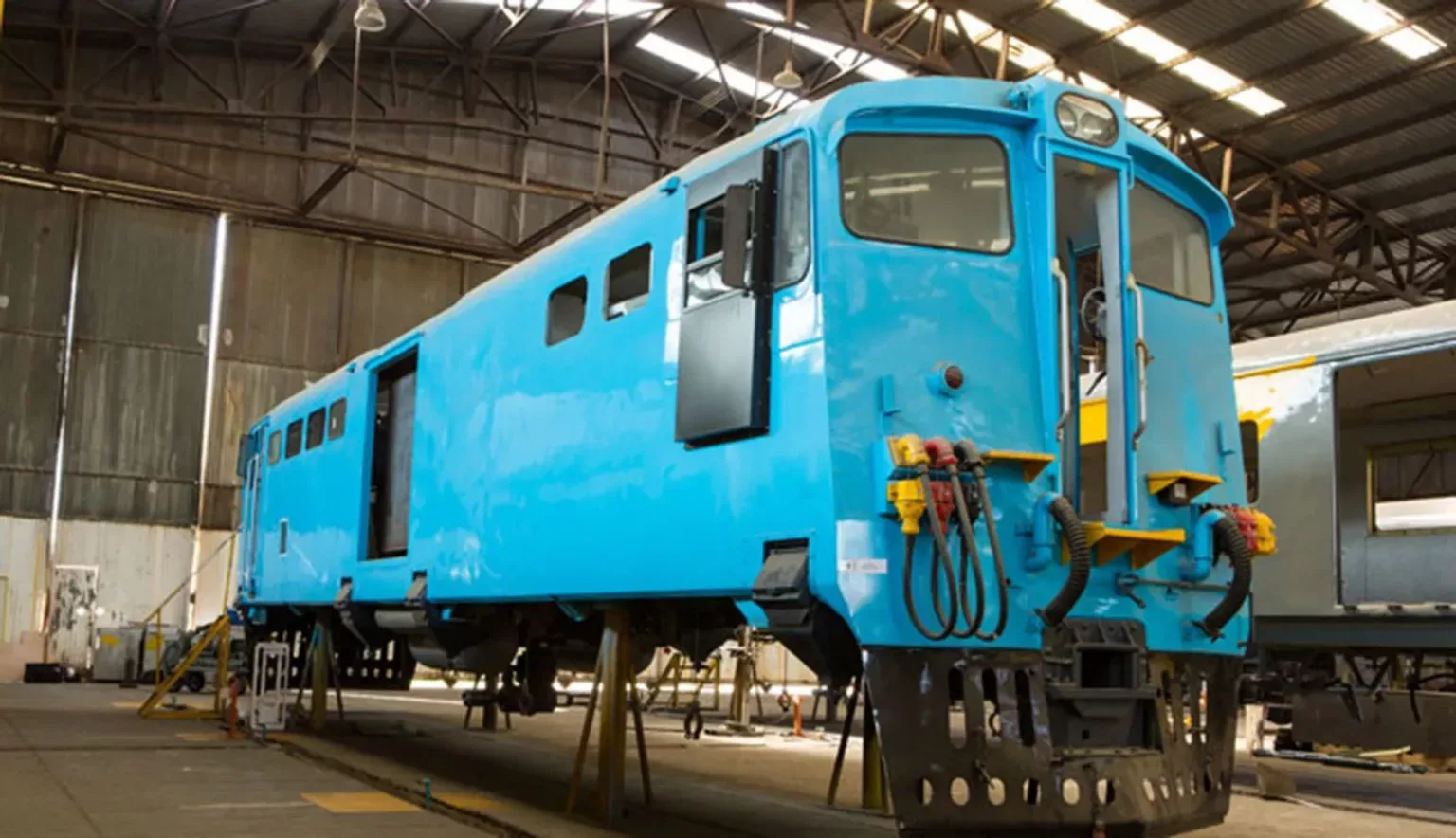Naledi Rail Engineering has been providing South Africa’s railway industry with engineering expertise since 2004, a vital pool of knowledge given the government’s plans to develop the sector.
KEEPING SA ON TRACK
South Africa is home to the continent’s most developed and largest rail network.
According to the latest available figures from the World Bank, the country houses almost 21,000 kilometres of usable rail track (2017), while the government has announced plans to invest R900 billion by 2027 on transportation infrastructure, of which rail is a critical part.
However, while this form of transport is rightly seen as a key enabler for South Africa in the future, there are some hurdles which need to be overcome.
For example, the USA’s International Trade Administration (export.gov) has identified a shortage in capacity both at a passenger and freight level that needs to be overcome if the industry is to maximise its potential and become what is labelled a ‘best prospect industry’.
Further, project implementation has been slow and may be reviewed to ensure good governance and sustainability, while internal inefficiencies and administered rail tariffs have made competing against road freight difficult.
But, despite the challenges, opportunities are also aplenty, not least in the form of projects like that at Tambo Springs in Gauteng. Due to be fully commissioned by 2022 and valued at $15 billion, this is a multimodal rail, road and air hub that will present significant cost efficiencies and freight capacity increases.
Expanding South Africa’s rail network is not the only way in which the industry will continue to develop and modernise.
Engineering and maintenance of the trains themselves is equally important, and this is where Naledi Rail Engineering takes centre stage.
Founded in 2004, the company is based seven kilometres from Oliver Tambo International airport in the East Rand, within close range of the Sandton area including Johannesburg CBD. It provides general overhaul, upgrades and minor repairs to stock across the continent, and to date has repaired in excess of 477 motor coaches and plain trailers for PRASA and presently employs around 200 dedicated members of staff.
Naledi Rail Engineering is also a BBBEE Level 4 and SABS registered company, operating with the stated goal “to give the rail industry a better alternative and local source for all railway engineering needs”.
Indeed, such is the company’s commitment to quality, it maintains a philosophy of zero defects, aiming to complete jobs correctly first time, every time.
This dedication is backed up by ISO 9001 accreditation, a globally recognised certification which validates management processes – systems put in place by the firm’s executive team which between them hold more than 125 years of experience in the rail industry. This includes CEO Wahed Rasool, who started his career in 1987 at Transnet and carries significant expertise in electrification, project management, risk profiling and risk management for rolling stock.
“Quality of product and services is of great importance to the Naledi Rail Engineering team,” Naledi states. “We understand that poor quality products can cost you in the long run and we work hard to maintain the highest standard of quality products by using only the best technology.
“Our commitment to producing the highest quality performance is twofold, giving you a guarantee of both high-standard products and excellent service. The Naledi Rail Engineering team values your loyalty to our brand, and this motivates our desire to perform at our best.”
Among its loyal customers are major rail industry players, including commuter rail service provider PRASA, Shosholoza Meyl, a division of the Passenger Rail Agency of South Africa that operates long-distance passenger rail services, and Metrorail, responsible for transporting up to two million passengers daily in Gauteng, Western Cape, KwaZulu-Natal and Eastern Cape.
A landmark project which showcased Naledi Rail Engineering’s expertise involved rebuilding a series of coaches for the latter of these three clients.
Severely damaged by fire, Naledi’s team was able to cut off the burned sections and build new coaches on the existing underframe, one of many examples of work which has also included reprofiling train wheels, building armoured cars and equipping locomotives with the latest technology.
DEVELOPING TALENT
Such work is carried out by skilled engineers, the development of this knowledge being another critical focus for the company. Since 2014 it has been running a training programme to help develop local talent within the railway engineering arena, not only providing employment opportunities to South African citizens but also gearing up the industry for expansion and development.
“Our employees are all experts in railway engineering and are well equipped to deal with any challenge presented to them,” Naledi states. “The Naledi Rail Engineering workforce is incredibly diverse with employees of all demographics being represented.
“Employees are a vital element to any business and Naledi Rail Engineering understands that nurturing our employees is of great benefit to both our business and yours. Part of the mission of Naledi Rail Engineering is to create more opportunities for black graduates within the industry. As a result, we work to place them alongside experienced qualified technicians as on-site mentors.”
A key part of this training involves adherence to strict safety standards, the company conforming to all rail safety regulations across maintenance procedures.
“Naledi Rail Engineering strives to be the most reliable and sustainable railway company in the industry and safety is therefore imperative,” the firm adds. “Whether we are producing passenger or freight stock, we understand the value of what is being transported.”
This attention to detail will no doubt serve the company (and indeed the wider industry) well in the coming years as South Africa steps up its focus on developing world-class rail infrastructure. As projects such as Tambo Springs come to fruition, the likes of Naledi Rail Engineering will only become busier.































